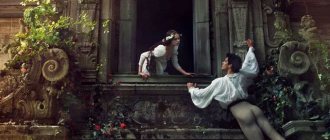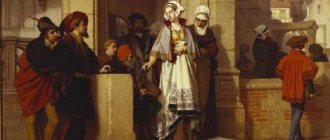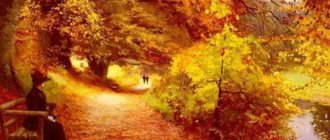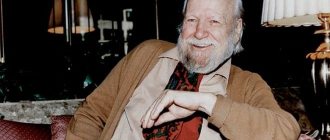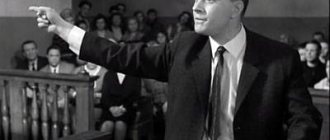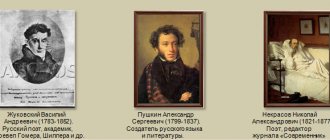Best Famous Quotes from Hamlet
Hamlet Quote About Knowledge
A phrase used by the main character in William Shakespeare's play Hamlet. Hamlet suggests that human knowledge is limited: “ There are more things in heaven and earth , Horatio, / Than are dreamed of in your philosophy [science]. ”
Quote from Hamlet about smiling
A smile is the only thing that makes people stay away from worldly worries and tensions. A smile increases a person's life expectancy. “You can smile and smile and be a villain.” A smile can hide people's feelings.
Quote from Hamlet about knowledge
Hamlet's quote about knowledge basically describes the personality of a common man. “We know who we are, but we don’t know what we can do.” People do not know about the future and future difficulties, but knowing yourself is very important for leading a peaceful life.
Quote from Hamlet about thinking
“Nothing is good or bad, but thinking makes it so.” This Hamlet quote about thinking mainly focuses on the thinking of an ordinary person. If you think positively about someone, then everything will be fine. Negative thinking leads to bad moods. So, to have a good mood, you must think positively.
Famous quote from Hamlet
“To be or not to be, that is the question.” One of the best Hamlet quotes in the English language describes suicidal legitimacy in a world of pain. This is the beginning of Hamlet's wonders about life. To live or not. This quote is a record holder in English literature.
Quote from Hamlet about kindness
“Little more than relatives, and less than kind.” Hamlet's quote about kindness portrays how important it is to be a kind person. Claudius is not a blood relative of Hamlet, so he used these words for him.
Quote from Hamlet about listening
“Listen to many people, talk to few people.” This Hamlet Quote on Listening shows that there is wisdom in man to talk less. Most people wanted to talk to many people, but this is bad. Always try to be a good listener.
Quote from Hamlet about conscience
“Conscience makes us all cowards.” Human conscience tells them what is right for them and what is not. The curious act of thinking makes people think twice or thrice.
Quote from Hamlet about hell
"Hell is empty and all the devils are here." This quote refers to the character of a person. The true character of a person can be known. William Shakespeare truly recognized the character of his father and all those people who traveled with him.
Phrases from the book Hamlet
Quotes and phrases from the tragedy “Hamlet”:
Hello Rosencrantz and Guildenstern!
She was drawn to him, as if her hunger only increased from satiety. (translated by M. Lozinsky)
The madness of the powerful requires supervision. (translated by M. Lozinsky)
Call me any instrument, you may upset me, but I cannot be played. — act III, scene 2 (trans. B. Pasternak)
And then silence.
Don't drink wine, Gertrude! (translated by M. Lozinsky)
The great have no power in their desires. (translated by M. Lozinsky)
Closer to your son, but further away from your friend.
Poor Yorick!
My life is cheaper to me than a pin, And what will he do to my soul, When it is immortal, like him? (
I loved her; forty thousand brothers with all the multitude of their love would not be equal to me.
How often blindness saved us, Where foresight only failed.
There is not such a scoundrel in Denmark who would not be trash. (translated by B. Pasternak)
There is no need for spirits from the grave for truths like this. (translated by B. Pasternak)
But I see that there is not enough sorrow in you! Oh, what a proud mind is slain! O women, your name is treachery! An exemplary example - he fell, he fell to the end.
You turned your eyes with your pupils into your soul, And there are spots of blackness everywhere
Isn’t it my duty to the one who ruined the Honor of my mother and the life of my father, Standing between the election and my hope, With such cunning he threw a bait to Me myself - isn’t it a just thing to repay him with this hand? And isn’t it a curse to let this worm feed on our nature?
There is much in nature, friend Horatio, that our sages never dreamed of. (translated by M. Vronchenko)
To be or not to be, that is the question. Is it worthy to submit to the blows of fate, or is it necessary to show resistance and in mortal combat with a whole sea of troubles to end them? Die. Forget yourself and know that by doing this you are breaking the chain of heartache and thousands of hardships inherent in the body. Isn't this the Desired Goal? Die. Lose yourself in sleep. Fall asleep... and dream? Here is the answer. What dreams will you dream in that mortal sleep, When the veil of earthly feelings is removed? That's the solution. This is what prolongs the life of our misfortunes for so many years. Otherwise, who would bear the humiliation of the century, The untruth of the oppressor, the nobles, Arrogance, rejected feelings, Slow judgment, and most of all, The ridicule of the unworthy at the worthy, When all ends are so easily tied up by the blow of a dagger! Who would agree, Groaning, to trudge along under the burden of life, If the unknown after death, The fear of a country from which no one returns, did not incline the will To put up with a familiar evil, Rather than strive to flee to the unfamiliar! So thought turns us all into cowards And our resolve withers like a flower In the sterility of a mental dead end. This is how plans on a grand scale, which initially promised success, perish from long delays. — act III, scene 1 (translated by B. Pasternak)
Statements, phrases and quotes from the tragedy “Hamlet” or The Tragical History of Hamlet, Prince of Denmark (The Tragical Historie of Hamlet, Prince of Denmarke) is a tragedy by William Shakespeare, one of the most famous plays in world drama. Written in 1600-1601.
Relevant for all times: 25 quotes from William Shakespeare in bookmarks 41
William Shakespeare is deservedly considered the greatest English-language writer and one of the best playwrights in the world. His literary heritage is divided into two parts: poetic (poems and sonnets) and dramatic, and in total there are 154 sonnets, 38 plays, 4 poems and 3 epitaphs. His works have been translated into most languages of the world and are staged in theaters more often than the works of any other playwright in the world.
The works of William Shakespeare are full of profound observations about human nature, love, life and friendship. Almost 5 centuries have passed, but they are still relevant today as never before.
We have collected 25 bright and deep quotes from the works of the great playwright and poet to once again think about the most important thing:
- Silence is not a sign of soullessness at all. Only what is empty inside rattles .
- Honey is so sweet that it finally turns bitter. Too much flavor kills the taste.
- We get irritated over trifles when we are offended by something serious.
- Vows made in a storm are forgotten in calm weather.
- Mother nature is wise, but her son is brainless.
- Where words are few, they have weight.
- Love runs away from those who chase it, and throws itself on the neck of those who run away.
- Folly and wisdom are caught as easily as contagious diseases. Therefore, choose your comrades.
- To catch happiness, you must be able to run.
- Most people prefer stupidity to wisdom, because stupidity makes you laugh, but wisdom makes you sad.
- Men are like April when they are courting and like December when they are already married.
- The hope of pleasure is almost as pleasant as pleasure itself.
- Don't set the furnace too hot for your enemies, or you'll burn yourself in it..
- The success of a witty word depends more on the ear of the listener than on the tongue of the speaker.
- What does the name mean? A rose smells like a rose, whether you call it a rose or not.
- Every madness has its own logic.
- You can fall in love with beauty, but you can only love the soul.
- A crow smears its wings with mud - No one will notice anyway, And the swan, despite all its efforts, will not be able to wash the stain off its whiteness...
- With one glance you can kill love, with one glance you can resurrect it.
- A coward dies in every danger that threatens him, but a brave man dies only once..
- The poor squashed insect suffers just like a dying giant.
- Three rules for achieving success: know more than others; work harder than others; expect less than others.
- There is nothing good or bad in this world. There is only our attitude towards something.
- The best thing is the word spoken directly and simply.
- You are so eager to judge the sins of others - start with your own and won’t get to others.
Sep 8, 2016
Three Avengers
Critics have long recognized his interpretation of the theme of revenge in the tragedy as one of the evidence of Shakespeare's dramatic mastery. The question of revenge is one of the oldest moral problems. Without being able to cover its history, we will limit ourselves to only brief remarks.
First of all, it should be noted that the custom of blood feud was in sharp contradiction with religious Christian morality, which prescribed forgiveness of offenses. Meanwhile, the life practice of the entire Christian Middle Ages was replete with cases of revenge. Renaissance humanists, affirming the principles of humanity, opposed the feudal custom of revenge. The condemnation of bloody feud received the brightest artistic embodiment in Romeo and Juliet, a tragedy showing the inhumanity and meaninglessness of family revenge.
In Hamlet, the matter of revenge becomes problematic. This is embodied by Shakespeare not in a discussion of whether revenge is moral or immoral, but in three specific dramatic situations.
In the tragedy there are three sons whose fathers were killed: Hamlet, Laertes, Fortinbras.
Although the Norwegian prince is given little space in the tragedy, his figure is important in Shakespeare's ideological plan.
Fortinbras's father brought trouble himself. Hamlet's father did not have any evil intentions against him, but the warlike Norwegian king challenged the peaceful Danish king to a duel and died.
Fortinbras, having recruited a band of warriors, wanted to recapture the lands lost by his father. There is no hint of his desire for revenge in the tragedy. He can therefore be considered a supporter of that morality, which, if it does not completely reject the idea of \u200b\u200brevenge, but, in any case, actually abandons it.
It is not revenge that drives Fortinbras, but the desire for exploits, the desire for glory, ambition and a completely practical goal - the conquest of lands.
Why does Fortinbras become the heir to the Danish crown? Firstly, he has some formal right to this, since the lands of his father went into the possession of the Danish kings. But perhaps more important is Fortinbras’s moral position. The crown and throne go to the one who refused revenge. This is precisely the meaning of the last event that completes the entire complex action of the play.
Hamlet stands between him and Laertes in relation to revenge. To him, like Fortinbras, the idea of revenge itself is alien. We remember that it is with a heavy heart that he accepts the task entrusted to him by the Phantom.
If Laertes had taken the trouble to understand the circumstances, he would have been forced to admit that Hamlet did not plot against Polonius and killed him unintentionally. But the fact of the matter is that Laertes is least inclined to reason, while Hamlet is characterized by doubts and, as the American critic Harry Levin has convincingly shown, he is characterized by questioning intonations.
The three avengers differ from each other in their attitude to the country, power, and state. Laertes inherited the features of the old feudal freemen. He, his family, his family are higher than the state in his eyes. For Hamlet, the state is what it was for humanists - power that eliminates anarchy and lawlessness, curbing personal tyranny. For Fortinbras, it is a means to satisfy his ambition; he needs lands and power to back up his hereditary royal title.
Hamlet occupies a central place in relation to both: his father killed Fortinbras's father, and he himself killed Laertes' father. But in both cases, the murder was not the result of malicious intent.
The image of Hamlet asserts not only the right to revenge, but also its necessity in certain circumstances. Unlike fathers Fortinbras and Laertes, Hamlet's father was killed deliberately and villainously. It is no coincidence that Claudius and Laertes find a common language and conspire against Hamlet - both consider it possible to kill a person to achieve their personal goals. At the same time, Claudius also encroached on the life of the monarch. In taking revenge on him, Hamlet does not only pursue a personal goal, and this elevates him above both other sons of murdered fathers.
| Previous page | To contents | Next page |
Quotes from Hamlet from the tragedy “Hamlet, Prince of Denmark” (William Shakespeare)
To be or not to be - that is the question
The first phrase of Hamlet's Soliloquy “To be or not to be” (Act III Scene 1). Prince Hamlet, having learned that his father (King of Denmark) was secretly killed by Hamlet's uncle (King Claudius), who took possession of the crown and married Hamlet's mother (Gertrude), is tormented by doubts about whether to take revenge on him for the death of his father or not, and also argues about life.
To be honest with the way this world is is to be a man drawn from tens of thousands
Words from Hamlet (the prince) in conversation with Polonius (Chancellor of Denmark) (Act II, Scene 2).
After all, virtue in this fat age must ask forgiveness from vice, beg the bowed one to help him
Prince Hamlet's words to his mother, Queen Gertrude. Hamlet learned that his father was secretly killed by Hamlet's uncle, King Claudius, after which Claudius became King of Denmark and married Gertrude. Hamlet calls on his mother to repent and break off relations with Claudius (Act III Scene 4).
The power of beauty will sooner transform virtue from what it is into a bawd, than the power of virtue will transform beauty into its likeness.
The words of Prince Hamlet in a conversation with Ophelia (daughter of Polonius, Chancellor of Denmark) (act III scene 1).
If you absolutely want to get married, marry a fool; because smart people know well what monsters you make of them
The words of Prince Hamlet in a conversation with Ophelia (daughter of Polonius, Chancellor of Denmark) (act III scene 1).
Truly great is he who is not alarmed by a small reason, but enters into a furious dispute over a blade of grass when his honor is affected.
The words of Prince Hamlet, who reflects on plans for revenge on King Claudius for the murder of Hamlet's father (Act IV scene 4).
You can live with a smile and be a scoundrel with a smile
Hamlet talks about his father's murderer (the King, his uncle) and his mother who lives with him (Act I, scene 5).
Words words words
Words from Prince Hamlet (Act II, Scene 2). The king noticed that Hamlet had changed a lot and had become gloomy. To find out the reason for this change, his assistant, Polonius, decided to talk with Hamlet. To Polonius's question: “What are you reading, prince?” Hamlet replied: “Words, words, words.”
Praise for surprise: recklessness sometimes saves us where a deep idea perishes; then the deity completes our intentions, even if the mind has planned something wrong...
The words of Prince Hamlet, who tells his friend Horace how he managed to reveal the evil intent of King Claudius against him (Act V Scene 2).
Cunning speech sleeps in a foolish ear
The words of Prince Hamlet, in a conversation with the courtiers who came to Hamlet with an order from King Claudius, whom Hamlet hates (Act IV scene 2).
What is he to Hecuba? What does Hecuba mean to him?
The words of Prince Hamlet (Act II, Scene 2), admiring the skill of the actor, having just read an excerpt from Aeneas’ monologue describing the suffering of Hecuba, the wife of the murdered Trojan king Priam.
What is a person like when he is busy only sleeping and eating? An animal, nothing more.
The words of Prince Hamlet, who reflects on plans for revenge on King Claudius for the murder of Hamlet's father (Act IV scene 4).
